Sep 7, 2022The law of conservation of energy is a physical law that states that the total energy of an isolated system is a constant, although energy can change forms. In other words, energy is conserved over time. The law of conservation of energy is the first law of thermodynamics.
Kinetic and Potential Energy, Physics Law Conceptual Vector Illustration, Educational Poster. Stock Vector – Illustration of curve, physical: 116408955
Nov 28, 2022The Discovery of the Law of Conservation of Energy by G. Sarton et al, Isis, Vol. 13, No. 1 (Sep., 1929). This article traces the history of the conservation of energy back through Mayer, Joule, Carnot, and others. On the Principle of the Conservation of Energy by Ernst Mach, The Monist, Vol. 5, No. 1 (October, 1894), pp. 22-54 (33 pages
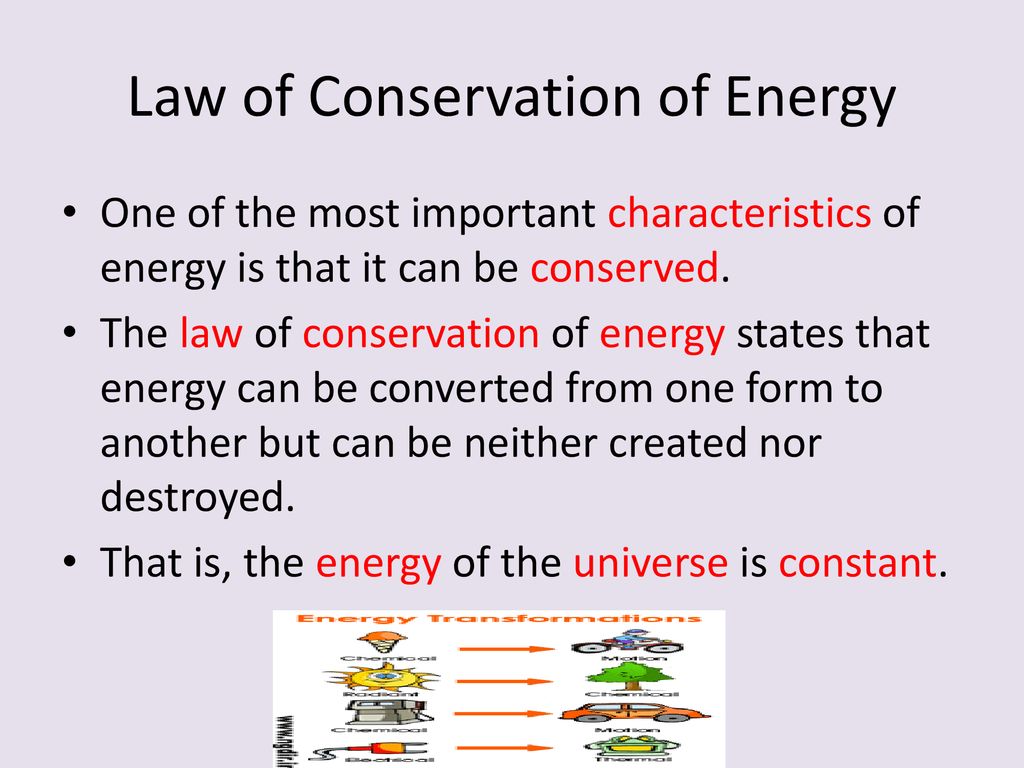
Source Image: slideplayer.com
Download Image
The law of conservation of energy is a physical law that states energy cannot be created or destroyed but may be changed from one form to another. Another way of stating this law of chemistry is to say the total energy of an isolated system remains constant or is conserved within a given frame of reference.

Source Image: shutterstock.com
Download Image
Chapter 4 Energy – ppt download
Physics library > Work and energy > Work and energy What is conservation of energy? Google Classroom Learn what conservation of energy means, and how it can make solving problems easier. What is the principle of conservation of energy? In physics, the term conservation refers to something which doesn’t change.
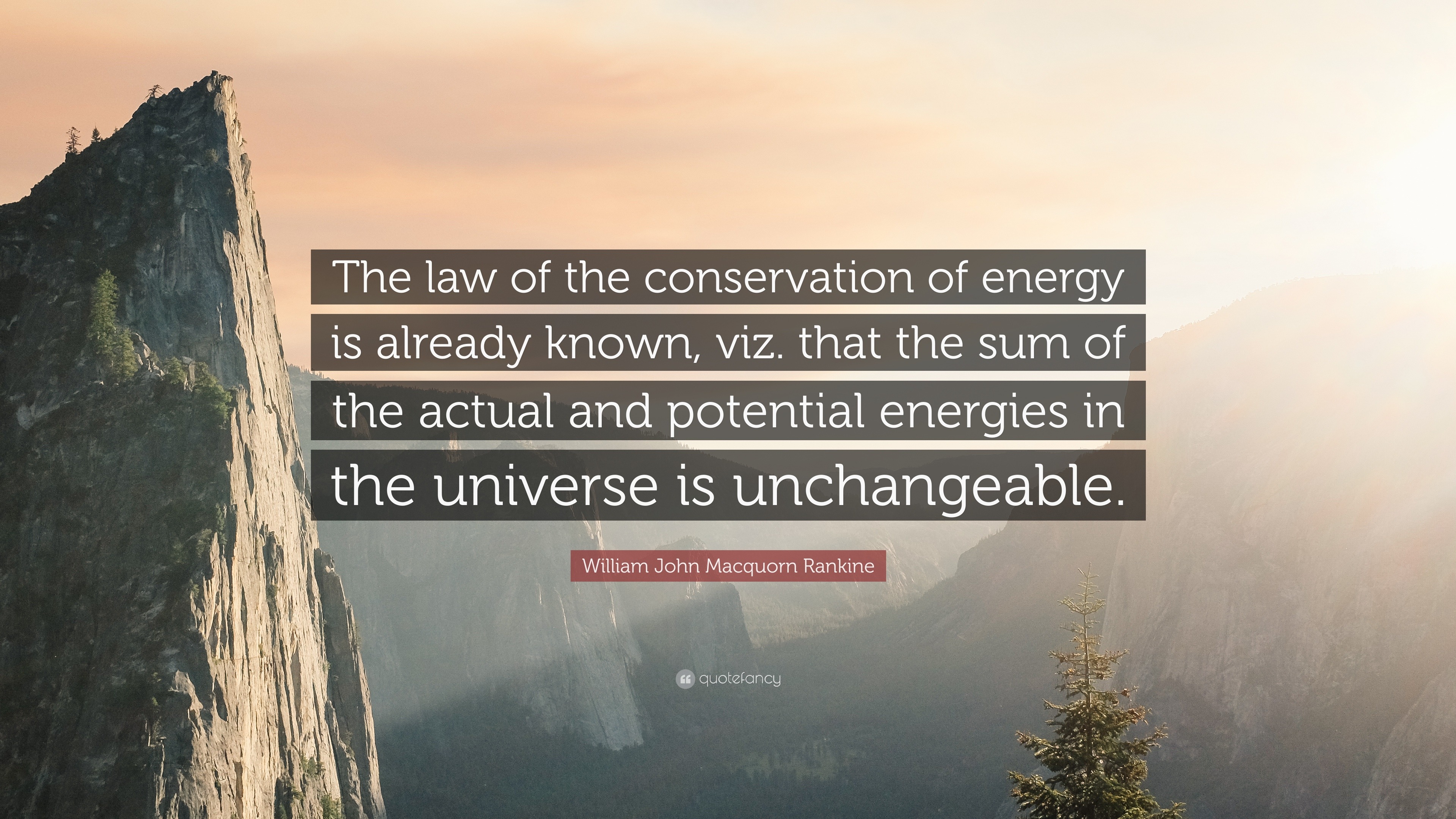
Source Image: quotefancy.com
Download Image
The Law Conservation Of Energy States That
Physics library > Work and energy > Work and energy What is conservation of energy? Google Classroom Learn what conservation of energy means, and how it can make solving problems easier. What is the principle of conservation of energy? In physics, the term conservation refers to something which doesn’t change.
Physics The law of conservation of mass states that in a chemical reaction mass is neither created nor destroyed. For example, the carbon atom in coal becomes carbon dioxide when it is burned. The carbon atom changes from a solid structure to a gas but its mass does not change.
William John Macquorn Rankine Quote: “The law of the conservation of energy is already known, viz. that the sum of the actual and potential energies in the un…”
The law of conservation of energy states that energy can neither be created nor destroyed – only converted from one form of energy to another. This means that a system always has the same amount of energy, unless it’s added from the outside.
William John Macquorn Rankine Quote: “The law of the conservation of energy is already known, viz. that the sum of the actual and potential energies in the un…”
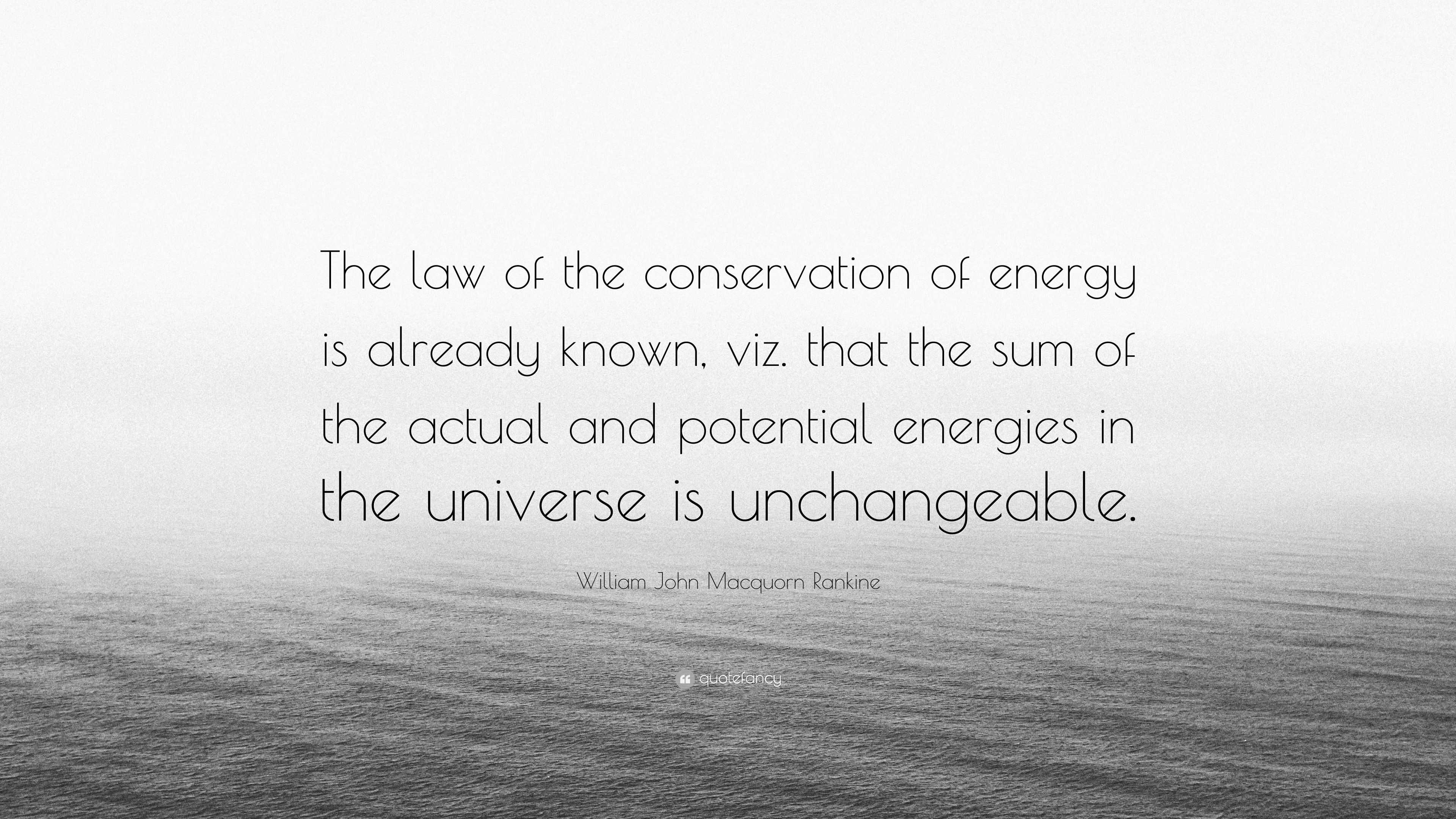
Source Image: quotefancy.com
Download Image
In physics, the law of conservation of energy states that the total energy of an isolated system cannot change—it is said to… | Physics, Energy conservation, Energy
The law of conservation of energy states that energy can neither be created nor destroyed – only converted from one form of energy to another. This means that a system always has the same amount of energy, unless it’s added from the outside.

Source Image: pinterest.com
Download Image
Kinetic and Potential Energy, Physics Law Conceptual Vector Illustration, Educational Poster. Stock Vector – Illustration of curve, physical: 116408955
Sep 7, 2022The law of conservation of energy is a physical law that states that the total energy of an isolated system is a constant, although energy can change forms. In other words, energy is conserved over time. The law of conservation of energy is the first law of thermodynamics.
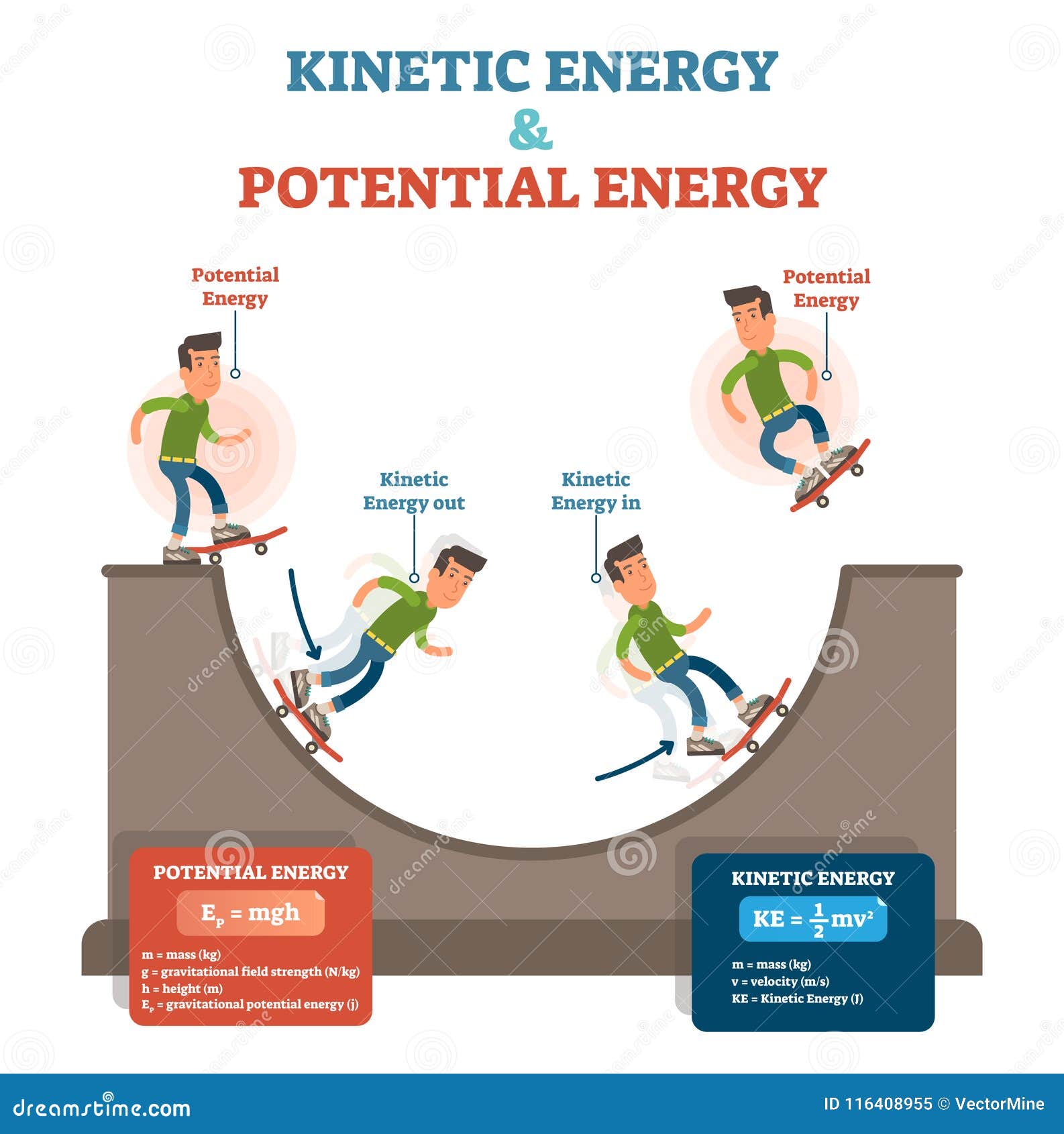
Source Image: dreamstime.com
Download Image
Chapter 4 Energy – ppt download
The law of conservation of energy is a physical law that states energy cannot be created or destroyed but may be changed from one form to another. Another way of stating this law of chemistry is to say the total energy of an isolated system remains constant or is conserved within a given frame of reference.

Source Image: slideplayer.com
Download Image
Energy Transformations – ppt video online download
Aug 16, 2023Weekly Natural Gas Storage Report. Natural Gas Weekly Update. Electricity. Electricity Data Browser. Quarterly Coal Report. Renewable energy FAQs. Freedom of Information Act (FOIA) U.S. Department of Energy. An introduction to the law of conservation of energy and an introduction to energy transformations.

Source Image: slideplayer.com
Download Image
Potential and Kinetic Energy: Energy Partners – ppt download
Physics library > Work and energy > Work and energy What is conservation of energy? Google Classroom Learn what conservation of energy means, and how it can make solving problems easier. What is the principle of conservation of energy? In physics, the term conservation refers to something which doesn’t change.

Source Image: slideplayer.com
Download Image
Bell Work Turn in lab Solve the following: – ppt download
Physics The law of conservation of mass states that in a chemical reaction mass is neither created nor destroyed. For example, the carbon atom in coal becomes carbon dioxide when it is burned. The carbon atom changes from a solid structure to a gas but its mass does not change.
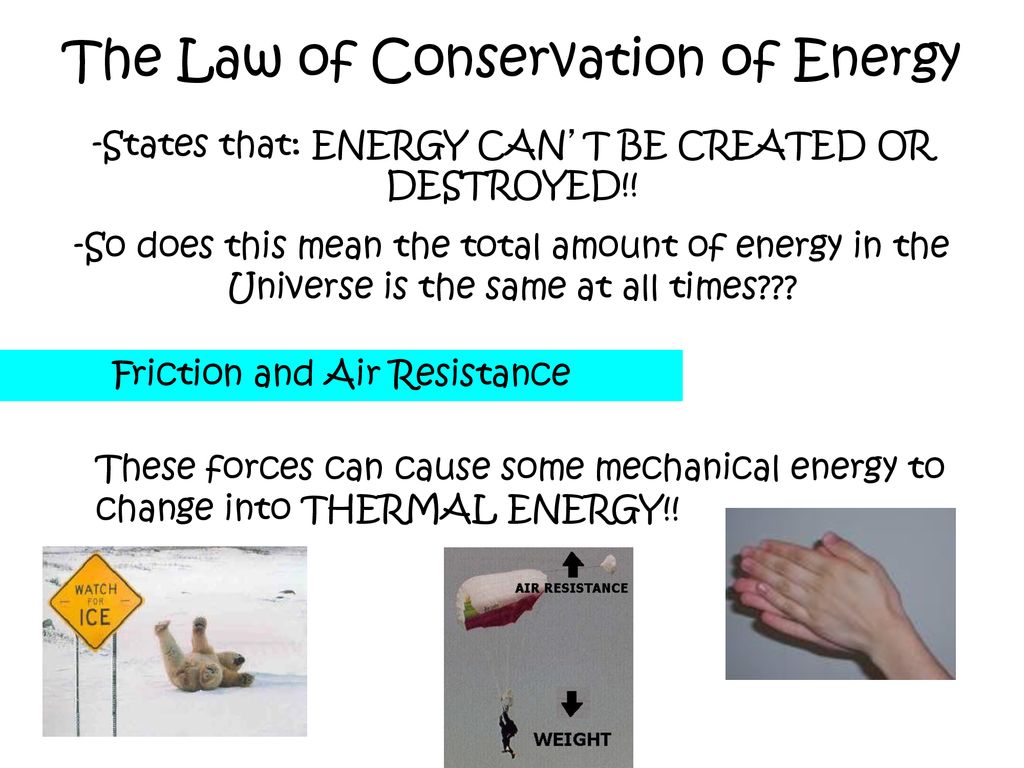
Source Image: slideplayer.com
Download Image
In physics, the law of conservation of energy states that the total energy of an isolated system cannot change—it is said to… | Physics, Energy conservation, Energy
Bell Work Turn in lab Solve the following: – ppt download
Nov 28, 2022The Discovery of the Law of Conservation of Energy by G. Sarton et al, Isis, Vol. 13, No. 1 (Sep., 1929). This article traces the history of the conservation of energy back through Mayer, Joule, Carnot, and others. On the Principle of the Conservation of Energy by Ernst Mach, The Monist, Vol. 5, No. 1 (October, 1894), pp. 22-54 (33 pages
Chapter 4 Energy – ppt download Potential and Kinetic Energy: Energy Partners – ppt download
Aug 16, 2023Weekly Natural Gas Storage Report. Natural Gas Weekly Update. Electricity. Electricity Data Browser. Quarterly Coal Report. Renewable energy FAQs. Freedom of Information Act (FOIA) U.S. Department of Energy. An introduction to the law of conservation of energy and an introduction to energy transformations.